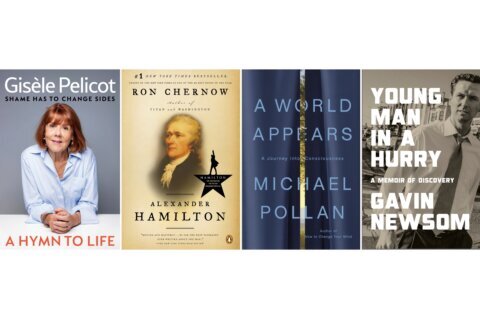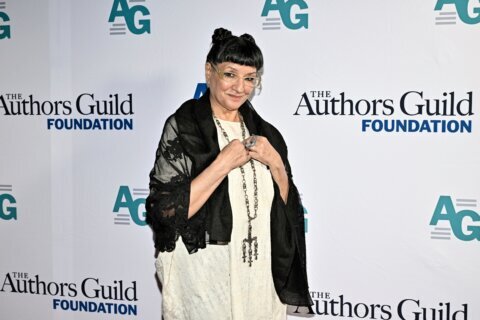What happens when you combine investigative journalism with documentary filmmaking? You get vital double exposure on the important issues of society.
Hence the name of the Double Exposure: Investigative Film Festival, which returns for its sixth annual event this Wednesday through Sunday with an all-virtual slate.
“This is our most comprehensive lineup yet,” co-founder Sky Sitney told WTOP. “We have over 20 films. … Having the online experience has allowed us to show more films than would have been manageable if we were working with brick-and-mortar theaters. So, we’re really excited to give a home to some of these extraordinary films.”
The opening night screening is the coronavirus documentary “76 Days.”
“This film looks literally at the first 76 days of the beginning of the coronavirus in Wuhan,” Sitney said. “The whole film takes place in an emergency room, where you’re seeing the very first patients start to come in and the healthcare workers beginning to work with them on this new virus that none of us at that time could have imagined.”
Friday’s centerpiece film is Sam Pollard’s new documentary “MLK/FBI.”
“MLK/FBI is looking at the FBI surveillance of Martin Luther King,” co-founder Diana Jean Schemo told WTOP. “J. Edgar Hoover ruthlessly marshaled all of his forces to find dirt on Martin Luther King and discredit him. … So, it’s a really eye-opening film that is particularly timely right now in this country, given what’s going on.”
The closing night screening brings Sonia Kennebeck’s “Enemies of the State.”
“This is a really complicated film because there’s a certain sense of an unreliable narrator,” Sitney said. “It begins with his complaints of being the target of a government conspiracy trying to punish him for his whistleblowing. … But as the filmmaker delves further into the story, [we] realize there is actually more there than meets the eye.”
While the opening, closing and centerpiece films are appointment viewing, the rest of the films are available on demand for the entire duration of the festival.
“There’s so many great films,” Schemo said. “There’s ‘Assassins,’ which looks at a plot to kill the brother of the North Korean leader, Kim Jong Un, then we have ‘Collective,’ which is about a fire at a nightclub. … There’s a beautiful film called ‘Mayor,’ which is about the mayor of Ramallah and how he balances politics versus municipal services.”
In addition to the films, the conference will be virtual as well.
“Our symposium has grown exponentially,” Sitney said. “We’re having many concurrent programs, masterclasses, symposiums, workshops, conversations with leading journalists and filmmakers, and taking advantage of being able to attract a global audience rather than an audience that can only experience it if they’re in D.C.”
In the end, it’s all about the eponymous double exposure.
“This is looking at the intersection of investigative journalism and film,” Sitney said. “The fact that investigative cinema and journalism aim to expose that which is hidden and needs to be brought into the light, but of course, double exposure has a photographic connotation and connects with the notion of photography and cinema.”
The goal is to salute reporters and combat claims of “fake news.”
“We were trying to reach people and build a public constituency for investigative journalism at a time when people were largely abandoning print,” Schemo said. “Investigative journalism is increasingly shaping and becoming a driver of culture. … This work only happens because there are laws that protect it.”
Listen to our full conversation.








